If you’re looking for a natural and easy way to boost your zucchini plant’s growth and productivity, you might be considering Epsom salt! Since Epsom salt is a commonly-found household item, magnesium is an essential nutrient for plants to thrive.
Therefore in this article, I will answer the most frequently asked question: can you use Epsom salt on Zucchini? If yes, how to use Epsom salt for zucchini plants. You will also learn ‘do zucchini like Epsom salt,’ and ‘is Epsom salt good for zucchini plants.’
Epsom Salt For Zucchini Plants
Epsom salt can help improve your Zucchini’s nutrient uptake, increase their overall health, and even ward off pests and diseases if added to their soil. Since it’s readily available, inexpensive, and safe, Epsom salt is an excellent option for gardeners of all experience levels.
Can You Use Epsom Salt On Zucchini?
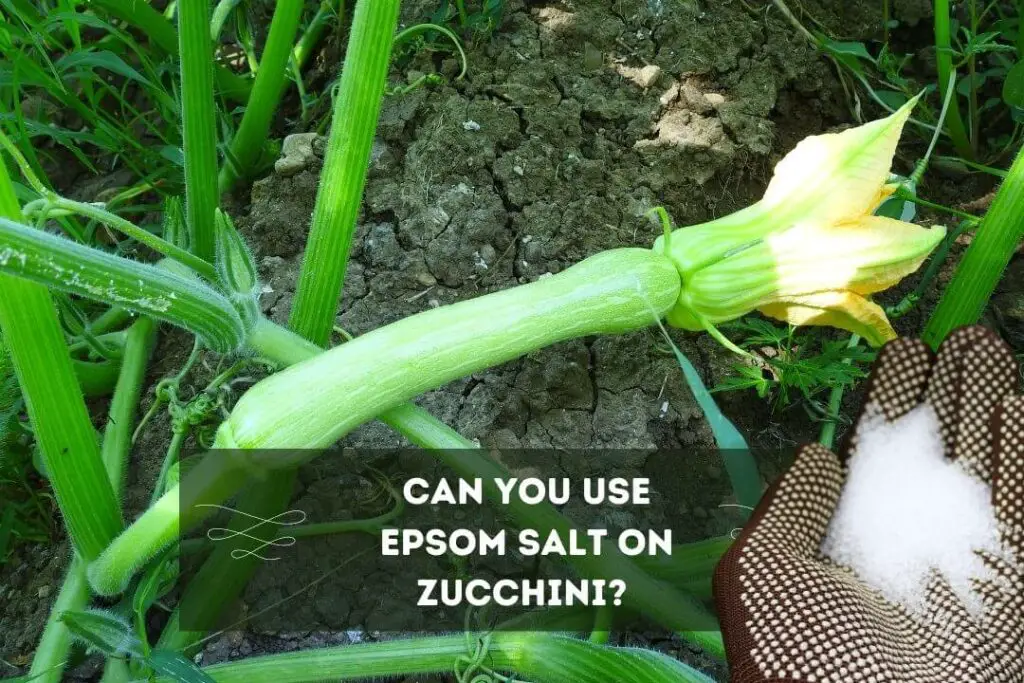
You can use Epsom Salt On Zucchini, which is a great way to add natural mineral compounds. Epsom salt is made of magnesium and sulfate, easily found at your local gardening store or online.
However, ensure you are not just dumping it on the plant or mixing it into the soil without measuring the appropriate amount. It can harm your plant rather than do good. The key is to apply it correctly.
It would be best never to spray the solution directly onto the leaves of your zucchini plant, as this can cause damage. Instead, it would be best if you focused on applying the Epsom salt solution to Zucchini’s soil so that it can effectively absorb the nutrients through its roots.
In addition, you should not use Epsom salt for zucchini as the sole source of nutrients. It is always advised to provide balanced fertilizer to your plant and ensure it gets proper water and sunlight daily.
Even though using Epsom salt on Zucchini can be a helpful way to improve plant health & productivity, you might wonder whether Zucchini is even like Epsom salt. If your plant is already suffering bug infestation, you need to look at natural bug spray for zucchini. Or, you can check my other comprehensive article on “What Can I Spray On Zucchini Plants For Bugs.”
Do Zucchini Like Epsom Salt?
I don’t need to tell you that Zucchini plants like nutrients that help them grow & thrive. Therefore, your Zucchini plants can benefit from using Epsom salt if used properly. As I told you earlier, salt is a naturally occurring mineral compound that contains magnesium & sulfate, both of which are essential nutrients for zucchini plant growth & development.
However, it is essential to note that not all plants may respond similarly to Epsom salt. Your zucchini plant will thrive when Epsom salt is only used as part of its care routine.
Many gardeners have frequently mentioned the significant improvement they have seen with their Zucchini plant after using Epsom salt, like increased yields & healthier plants overall.
You should never rely on Epsom salt as a source of nutrients for your Zucchini plant if you want it to produce an abundance of delicious Zucchini for you to enjoy. Fertilizers like 10-10-10 are an excellent addition to keeping your Zucchini plants happy & healthy.
Make sure you take a holistic approach to your plant care because every plant is unique. Depending on your region, climatic conditions, and soil type, you might also have to do a few trials and errors to learn what works well for your plants. Now let’s talk about how good salt is for your Zucchini plants.
Is Epsom Salt Good For Zucchini Plants?
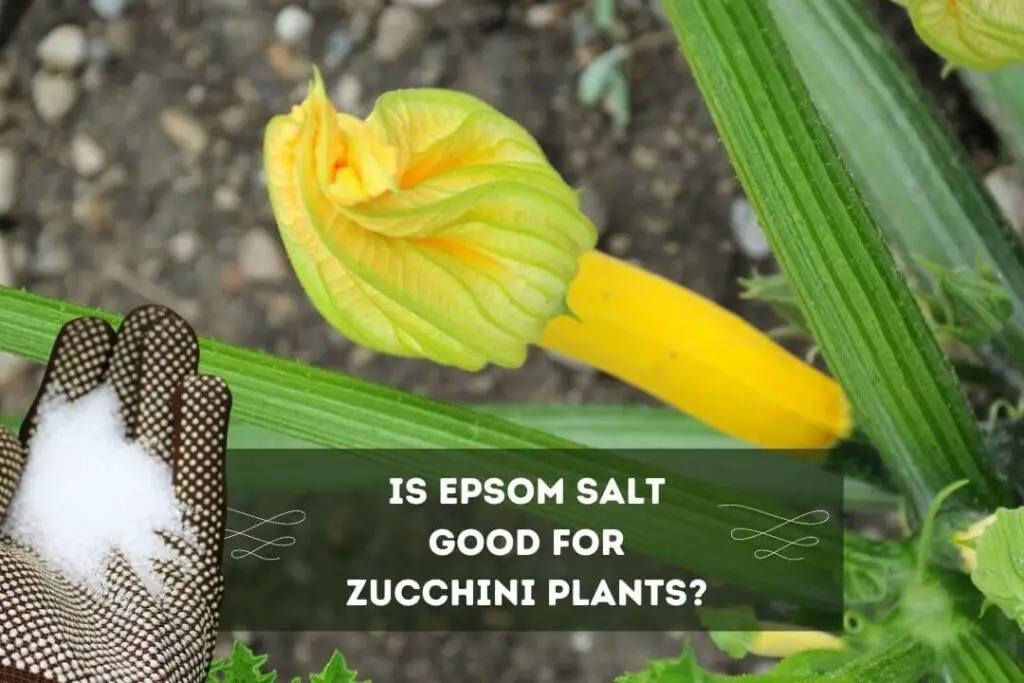
Yes, Epsom salt is perfect for your zucchini plants because it is a naturally occurring mineral compound that is composed of magnesium & sulfate. Magnesium is vital for photosynthesis and helps zucchini plants convert sunlight into energy.
In addition, salt is also going to help in improving Zucchini plant nutrient uptake, including nitrogen, phosphorus, and potassium. By using Epsom salt, you can ensure they have the energy needed to grow and produce fruit. However, Epsom salt may not be effective if you’re growing Zucchini plants in a raised bed.
Another benefit of using Epsom salt on your zucchini plants is that it can help in deterring pests & diseases. Since magnesium plays a vital role in producing chlorophyll which gives plants Zucchini their green color, it will be protected from pests & diseases if Epsom salt is used in moderation and as part of a holistic approach to plant care. Sometimes, light green zucchini plants grow due to magnesium deficiency.
I’ve recently shared an article on: 7 Reasons Why Are My Zucchini Light Green?
If you’re transplanting seedlings, you should consider adding Epsom salt to the soil to help reduce zucchini transplant shock. If this is the case, you must mix one tablespoon of Epsom salt into the ground at the bottom of the planting hole before adding the seedling. This will help your Zucchini plant adjust to its new environment more quickly & promote healthy growth.
However, suppose you are considering using Epsom salt only to improve the Zucchini plant’s health while helping it improve its nutrient uptake. In that case, you can use or apply it directly to the leaves.
To do this, you can make a foliar spray by mixing one tablespoon of Epsom salt into one gallon of water. After that, spray the solution onto the leaves of the plant. This will improve your Zucchini’s uptake of nutrients while helping deter pests.
However, you should always use salt with proper precaution as it may harm your plant if used excessively or improperly. Thus, I mention five easy steps to use Epsom salt for Zucchini plants.
How To Use Epsom Salt For Zucchini Plants
- Firstly you need to choose the right type of Epsom salt For zucchini When purchasing it. It must go with a variety labeled as ‘organic'” pure,” or “food grade’ to ensure it is free from harmful additives that could harm your Zucchini.
- If you want to improve your Zucchini’s nutrient uptake and growth you can directly use it as a soil amendment by mixing it straight into the soil around the base of the plant. Mix tablespoons of Epsom salt into 1 gallon of water & pour the solution onto the soil around your Zucchini. Ensure you repeat this process every 4-6 weeks during the growing season.
- Another great way you can use Epsom salt is by applying it directly to the leaves of the Zucchini, which will improve its color and protect it from pest infestation. To do this, mix one tablespoon of Epsom salt into 1 gallon of water and spray the solution onto your plant’s leaves.
- Additionally, If you’re transplanting your zucchini seedlings, consider using salt to help reduce transplant shock. Mix one tablespoon of Epsom salt into your soil at the bottom of its planting hole before adding the seedling.
- Avoid using salt too frequently because it takes time to notice some improvement, and results in your Zucchini. Even though Epsom salt for zucchini can be an excellent tool for plant care.
Note: It is essential to dissolve the Epsom salt in the water before applying it to the soil around the plant. Make sure you are watering your Zucchini well after using it.
FAQ
How Much Epsom Salt For Zucchini
If your zucchini plant is 5 feet tall, use five tablespoons of Epsom salt. As per the rule of thumb, you should use one tablespoon of Epsom salt per foot of your plant height if applied once a month during the growing season. Too much magnesium can harm the plant, so follow the recommended dosages and frequency of use.
Conclusion
In this article, I tried my best to tell you how valuable Epsom salt is to your zucchini plant care routine if added in moderation. Using Epsom salt will provide a natural source of magnesium that will promote healthy growth and productivity of your Zucchinis.
As I said earlier, you should always use Epsom salt in moderation and follow the recommended dosages to avoid over-fertilizing your Zucchini. I’ve heard from many gardeners who have seen great results from using Epsom salt on their zucchini plants.
Some users reported that their Zucchini produced ive and more abundant fruits, while others have noticed improved health and disease resistance. You should also use balanced fertilizers and keep your plant in proper sunlight.
Make sure their soil is not very dry; if it is, water it. If you have any other questions regarding using Epsom salt on the Zucchini plant, never mind dropping a comment below.
Do check our other helpful guide on Zucchini plant care and management. If you like this article, consider sharing it. Your share will help many people learn about the benefits of using Epsom salt zucchini. See you in the next post, till then, take care and goodbye.

![When to Plant Zucchini? [Best Planting Times]](https://gardenthrone.com/wp-content/uploads/2022/11/When-to-Plant-Zucchini-768x512.jpg)
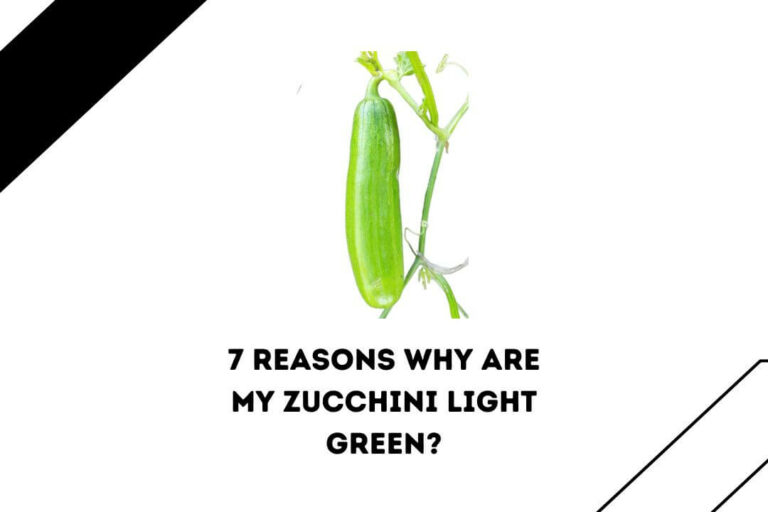
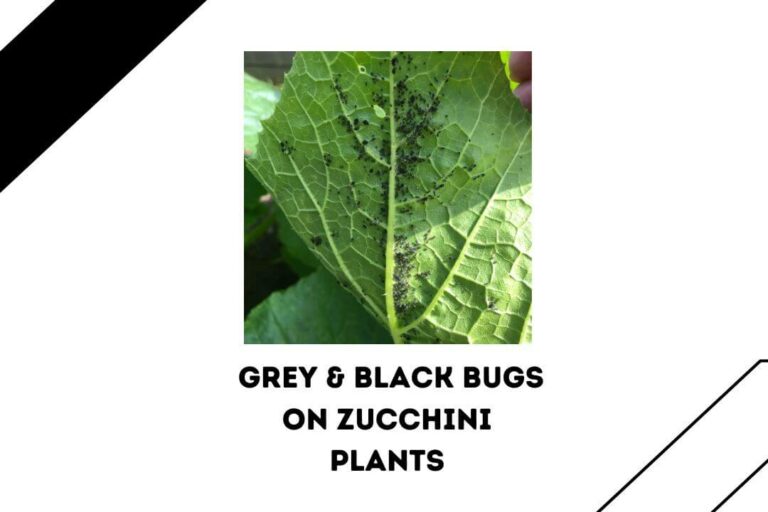
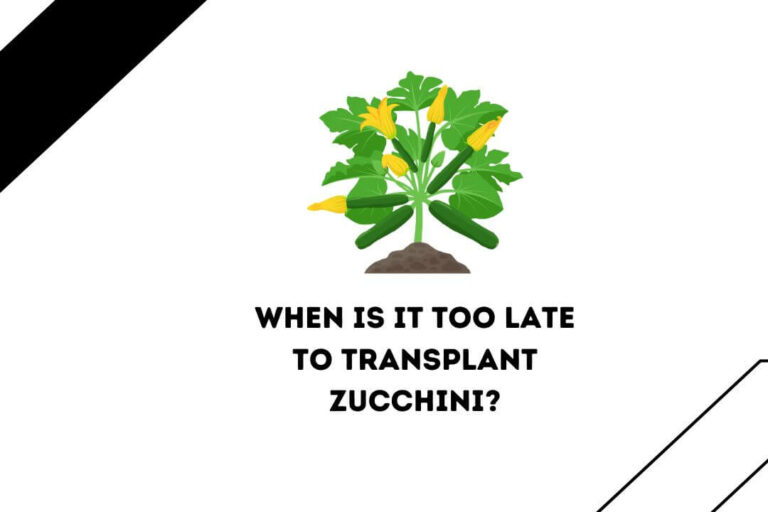

![What Is Eating My Zucchini Flowers? [Pests & Animals]](https://gardenthrone.com/wp-content/uploads/2022/11/What-is-eating-my-zucchini-flowers-768x512.jpg)
